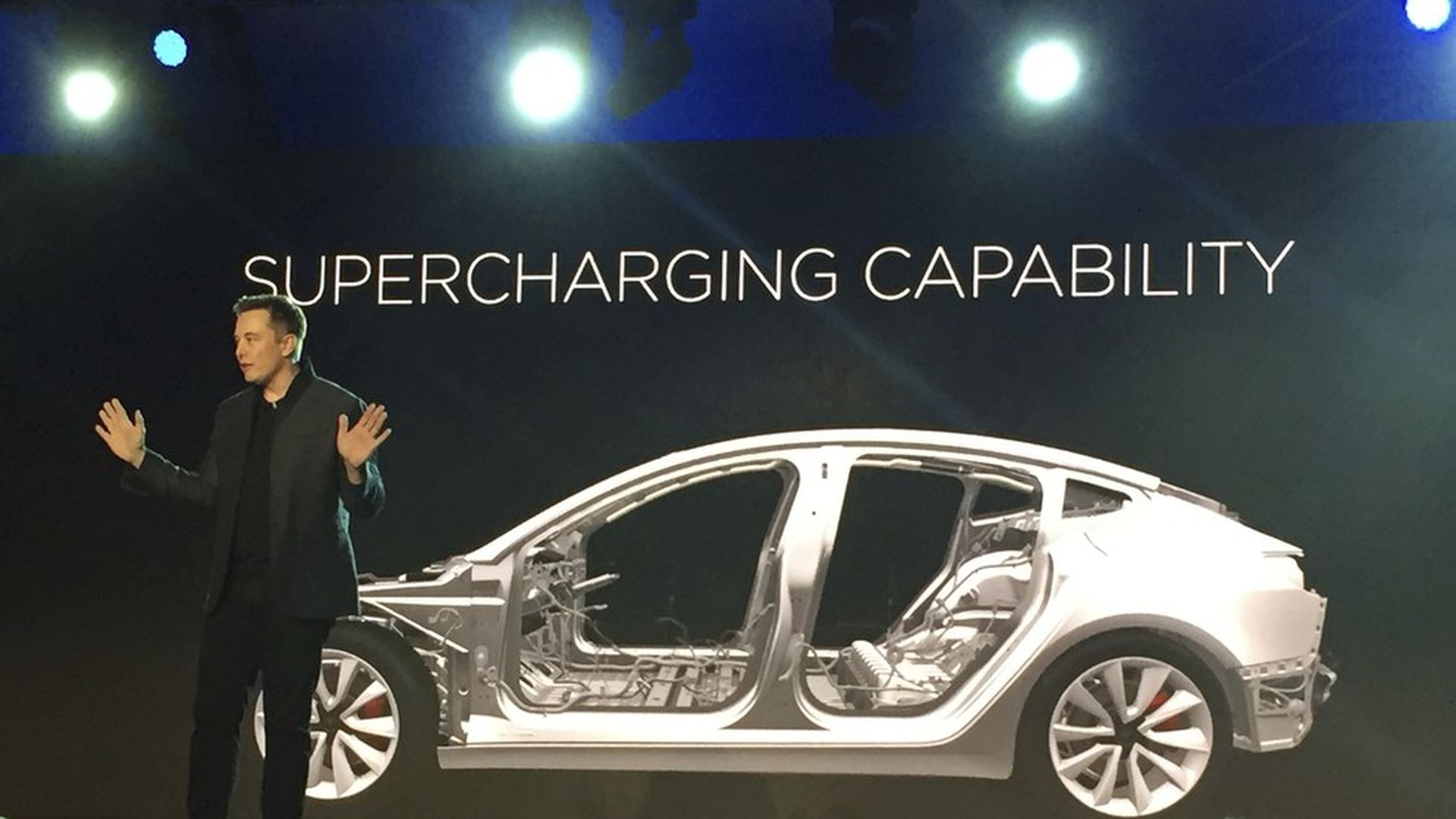Jul 26, 2017 - Energy & Climate
The U.K. joins a growing future ban on gasoline-powered cars
Add Axios as your preferred source to
see more of our stories on Google.

Tesla will deliver its first Model 3s Friday. (AP / Justin Pritchard)
Add Axios as your preferred source to
see more of our stories on Google.

Tesla will deliver its first Model 3s Friday. (AP / Justin Pritchard)